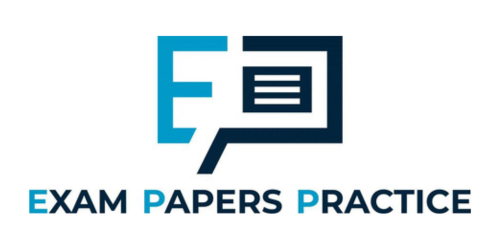A Level Mathematics: Your Guide to A* Success
Excelling in A Level Mathematics can open doors to a range of academic and career opportunities. While this subject demands rigorous practice and conceptual understanding, using the right resources and techniques can make all the difference in your results. At Exam Papers Practice, we provide high-quality resources designed to make your journey toward academic excellence simpler and more effective.
Here’s everything you need to know to achieve top marks in A Level Mathematics, along with tips for effective studying.
A Level AQA Mathematics
A Level Edexcel (9-1) Mathematics
A Level OCR Mathematics
Why Is A Level Mathematics Important?
A Level Mathematics is a highly respected qualification that serves as the foundation for courses like engineering, computer science, economics, and even data science. It challenges students to apply logical reasoning and problem-solving skills, preparing them for advanced studies and professional pursuits.
However, many students find it intimidating because of the complexity of topics like calculus, trigonometry, and statistics. This is where our curated resources at Exam Papers Practice come in, providing expertly designed materials tailored to address common difficulties.
Tips to Achieve an A* in A Level Mathematics
Achieving the top grade in A Level Mathematics requires a combination of disciplined study habits and strategic preparation. Here are some actionable tips:
1. Master the Basics
The foundation of success in A Level Mathematics lies in having a strong grasp of fundamental concepts, such as:
- Algebraic manipulation.
- Geometry and trigonometry basics.
- Arithmetic operations.
Without mastering these basics, tackling advanced topics like calculus or statistical modeling becomes far more challenging. Spend time reviewing these core principles using the Exam Papers Practice resources.
2. Create a Study Schedule
Consistency is key. Set aside regular study sessions dedicated to specific topics. For example:
- Monday: Algebra and Quadratics.
- Wednesday: Differentiation and Integration.
- Friday: Statistics and Probability.
Use the timetable to balance revising past content and learning new material. Exam Papers Practice provides mock exams that you can schedule into your study routine to track your progress.
3. Practice Past Papers Regularly
Solving past papers is one of the most effective ways to prepare for A Level Mathematics. Here’s why:
- Familiarization: Repeated exposure to real exam questions helps reduce anxiety.
- Time Management: Practicing under timed conditions teaches you to allocate time effectively across all sections.
- Error Analysis: Reviewing your mistakes helps pinpoint areas that need more attention.
Access the A Level Mathematics past papers on Exam Papers Practice to begin this crucial aspect of your preparation.
4. Understand, Don’t Memorize
While formulas are important, understanding their derivation and applications will make solving problems easier. For instance:
- Don’t just memorize the quadratic formula; learn how it’s derived and where it applies.
- Understand the relationship between differentiation and integration to solve problems involving rates of change or areas under curves.
Exam Papers Practice includes guides that explain these relationships in simple terms, making concepts easier to grasp.
5. Use Graphs and Visual Aids
Mathematics isn’t just about numbers — visualization plays a huge role in solving problems effectively. For topics like:
- Functions: Use graphs to understand their behavior (e.g., increasing, decreasing, turning points).
- Probability Distributions: Plot probability curves to interpret questions better.
Our platform offers resources with detailed illustrations to enhance your visual learning.
6. Collaborate with Peers
Group study sessions can be incredibly beneficial:
- Share strategies for solving difficult questions.
- Test each other with challenging problems.
- Discuss common errors and how to avoid them.
Join discussion forums or study groups linked through Exam Papers Practice to connect with other A Level Mathematics students.
7. Focus on High-Yield Topics
Some topics are more frequently tested than others. Prioritize the following:
- Calculus: Differentiate and integrate functions fluently.
- Trigonometry: Learn all identities and their applications.
- Statistics: Be comfortable interpreting data, calculating probabilities, and understanding distributions.
The platform highlights high-yield topics to ensure you dedicate your time effectively.
Benefits of Using Exam Papers Practice for A Level Mathematics
Comprehensive Past Papers
Our website offers an extensive collection of past exam papers and mark schemes. By practicing with these papers, you can:
- Understand the exam format and structure.
- Familiarize yourself with frequently asked questions.
- Gain confidence in solving questions within a timed environment.
Topic-Specific Resources
For A Level Mathematics, mastering topics like differentiation, integration, and probability is essential. Our resources are broken down into specific chapters, allowing you to focus on your weak areas and strengthen your understanding step by step.
Solutions and Explanations
We don’t just provide questions — we offer fully worked-out solutions. These explanations help clarify complex problems, showing you the most efficient methods to arrive at the correct answers.

